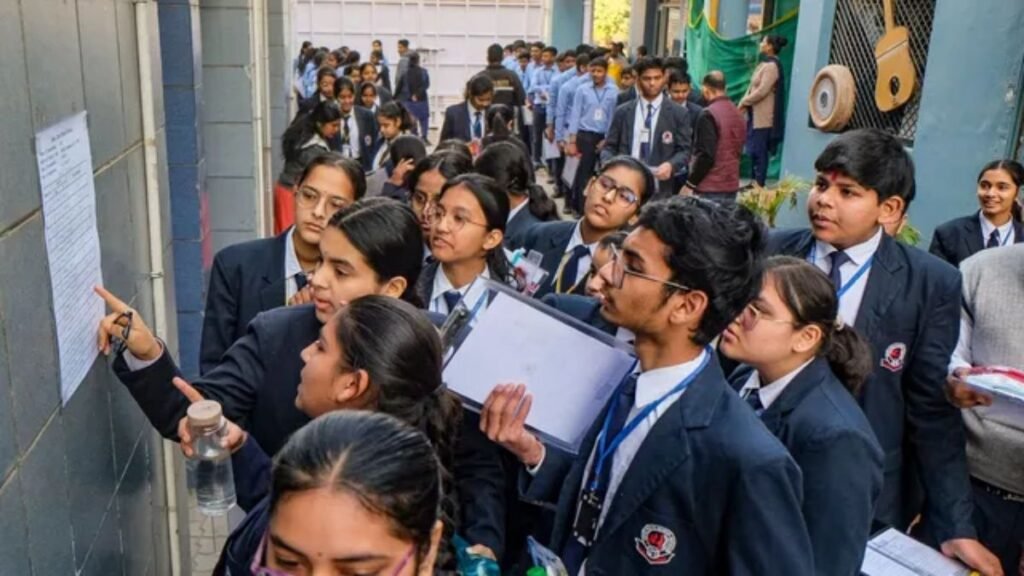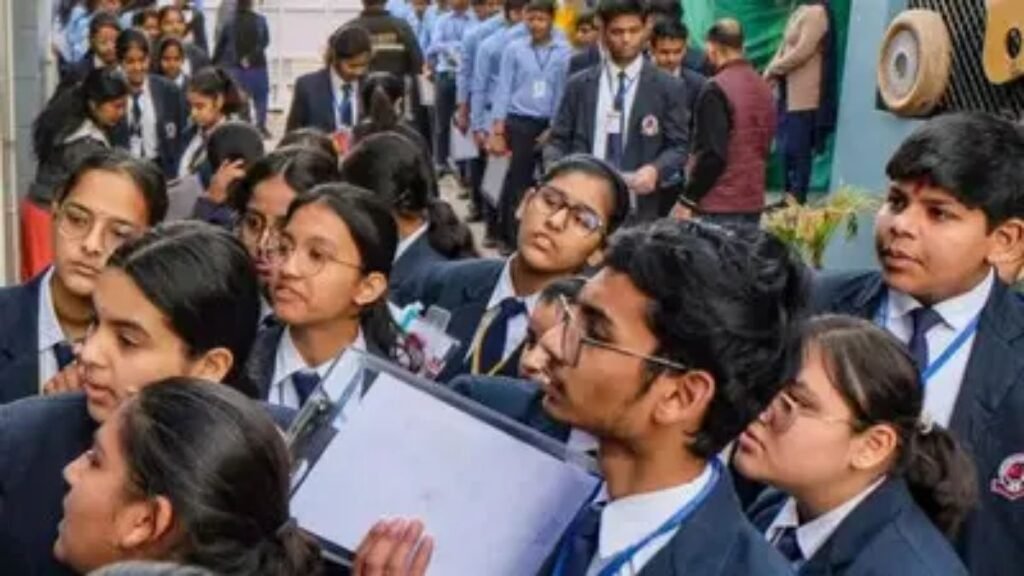Beginning in 2025–2026, students from dummy schools will not be allowed to sit the Class 12 board exams; instead, they must take the NIOS exams.
Aipur Officials announced on Thursday that students who attend “dummy schools,” where students are registered on paper but skip regular classes to concentrate on private tutoring for engineering and medical entrance exams, will not be permitted to take the Class 12 Central Board of Secondary Education (CBSE) board exams starting the following year.
The board intends to change its examination bylaws to forbid these students from taking the board exams and mandate that they instead sit for the National Institute of Open Schooling (NIOS) exam.According to Santosh Kumar, the board intends to change its examination bylaws to forbid these students from taking the board exams and mandate that they instead sit for the National Institute of Open Schooling (NIOS) exam.According to Santosh Kumar, the board intends to change its examination bylaws to forbid these students from taking the board exams and mandate that they instead sit for the National Institute of Open Schooling (NIOS) exam.
Kota, the most well-known coaching centre in India, will be greatly impacted by the ruling, especially for students getting ready for the highly competitive engineering and medical entrance tests JEE (Joint Entrance Examination) and NEET (National Eligibility cum Entrance Test).

The majority of the approximately 150,000 students registered in the city’s coaching facilities were admitted to phoney schools, according to a district official speaking on condition of anonymity, despite the fact that the precise number of dummy schools operating in Kota is unknown. At least three Kota schools had their registrations revoked after the CBSE designated them as sham schools on November 6 of last year.
“The onus of not attending regular school also falls on the concerned student and his or her parents…. It is proposed that examination bye-laws be amended accordingly.” The examination committee’s recommendation to bar students from board exams if they are found absent or non-attending during surprise inspections was approved by the CBSE’s governing body in its meeting on December 26, 2024. “Action against schools promoting the dummy culture or sponsoring non-attending candidates will be taken
A minimum of 75% attendance is required to be eligible for the CBSE board exam, the examination committee reiterated, adding that a 25% attendance relaxation is only permitted for legitimate reasons such as participating in national or international sports or medical situations.
The committee’s suggestion that the board not accept the applications of students sponsored by the dummy schools and that they face disciplinary action if they recommend such kids to the board was also approved by the governing body.

A top CBSE official told HT on Thursday that “actions will be taken against schools violating our affiliation by-laws depending upon the degree of violations.”
A bench of Delhi High Court judges Tushar Rao Gedela and chief justice D K Upadhyaya referred to the sham schools as a “fraud” in January and ordered the Delhi government and CBSE to take action against them.
The court was told by the CBSE counsel that more than 300 “dummy” schools nationwide were being targeted.
After the board discovered a sizable number of absentee students in Classes 9 through 12 at 21 schools in Rajasthan and Delhi during a series of surprise inspections in September, the CBSE terminated its affiliation with these institutions in November of last year. Additionally, six Delhi schools had their affiliations downgraded by the board.
Kota’s dummy school system is run by official agreements between connected schools and coaching centres. While spending nearly all of their time in coaching classes, students enrol in them to keep their eligibility for board exams.
“Students’ mentality is adversely affected by dummy schools, which lead them to assume that they can manipulate the system to advance in life. Students’ social, emotional, and physical growth depends on their consistent attendance at school, according to Professor BJ Rao, vice-chancellor of the University of Hyderabad.
The distinction between traditional CBSE certification and NIOS certification is a crucial factor for pupils impacted by this policy change.
“Conventional board schooling is regular mode, when students attend lessons regularly in schools, while NIOS allows students to complete schooling in remote mode… While state board and CBSE passing certificates do not make reference to open schooling, NIOS passing certificates do. The principal of Mount Abu Public School in Delhi, Jyoti Arora, stated that both NIOS and CBSE certifications are acceptable for admission to postsecondary education.
Founded in 1989, the NIOS is acknowledged as a comparable substitute for traditional boards. Nonetheless, perception disparities still exist in some workplaces and educational settings.
Concerns have been raised by parents of pupils presently enrolled in dummy schools regarding the midstream policy change.
According to MS Chauhan, head of Vibrant Academy, a teaching centre in Kota, the decision may have an impact on students getting ready for competitive exams. We both believe that it is necessary to restrict the culture of the dummy institute. However, why are there no cutting-edge curricula and instructional resources that complement the coaching training offered? The students’ interests are entirely at odds with this choice,” he declared.
Kota-based 18-year-old Sonia Kumari, a NEET candidate, expressed concern over the proposed change. “If we have coaching during the day, how will we be able to attend regular lessons at school? This schedule looks to be hard to balance.
Pingback: How One Mother’s Support Made a Big Difference in JEE 2025 -